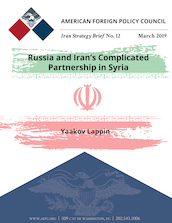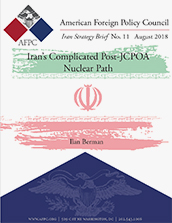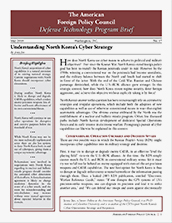
Iran Strategy Brief No. 13: Reforming U.S. Persian Language Media - A preliminary Assessment
In the Spring of 2017, the management of the Broadcasting Board of Governors (BBG), the U.S. government’s official coordinating body for international media, approached the American Foreign Policy Council with a request. In response to persistent criticism from lawmakers on Capitol Hill, as well as mounting pressure from the newly-inaugurated Trump administration, the agency sought to commission an independent review of the content of its Persian-language media outreach. Such a process, BBG professionals explained, would help the agency to identify and rectify significant deficiencies at a time when the role of U.S. broadcasting toward the Islamic Republic was a topic of growing scrutiny (and skepticism) among those formulating the country’s strategy toward Iran...


